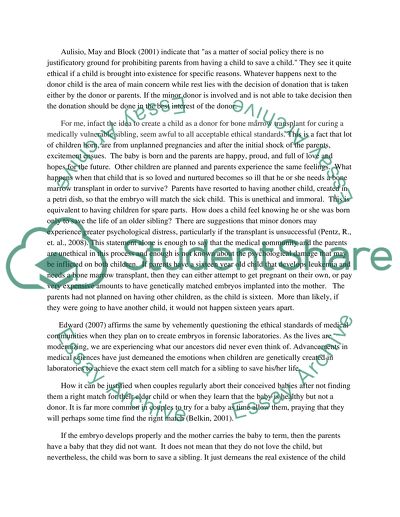Cite this document
(“Should Parents have a Another Child to Save the Life of Another Child Research Paper”, n.d.)
Should Parents have a Another Child to Save the Life of Another Child Research Paper. Retrieved from https://studentshare.org/english/1445787-should-parents-have-a-another-child-to-save-the
Should Parents have a Another Child to Save the Life of Another Child Research Paper. Retrieved from https://studentshare.org/english/1445787-should-parents-have-a-another-child-to-save-the
(Should Parents Have a Another Child to Save the Life of Another Child Research Paper)
Should Parents Have a Another Child to Save the Life of Another Child Research Paper. https://studentshare.org/english/1445787-should-parents-have-a-another-child-to-save-the.
Should Parents Have a Another Child to Save the Life of Another Child Research Paper. https://studentshare.org/english/1445787-should-parents-have-a-another-child-to-save-the.
“Should Parents Have a Another Child to Save the Life of Another Child Research Paper”, n.d. https://studentshare.org/english/1445787-should-parents-have-a-another-child-to-save-the.


